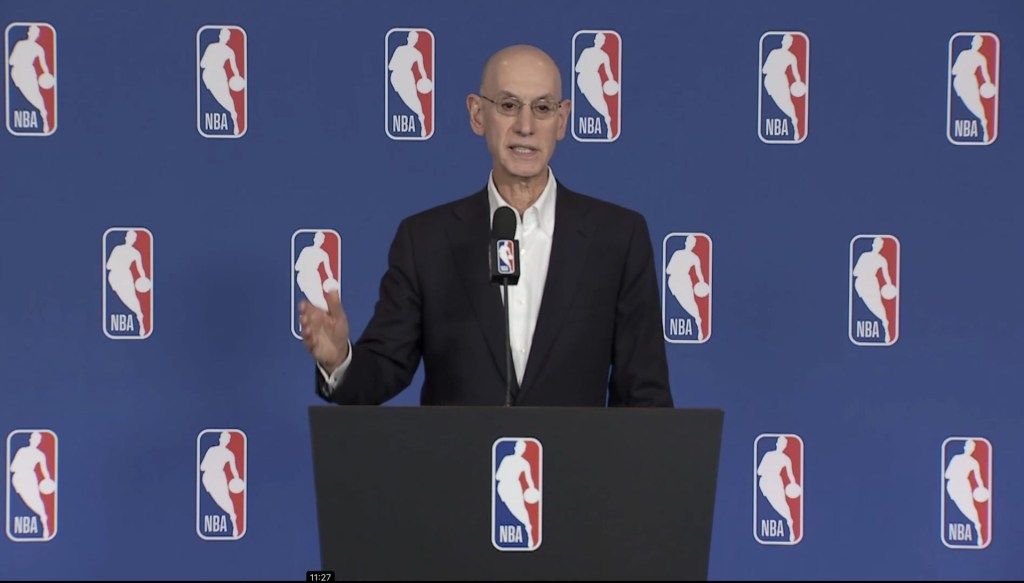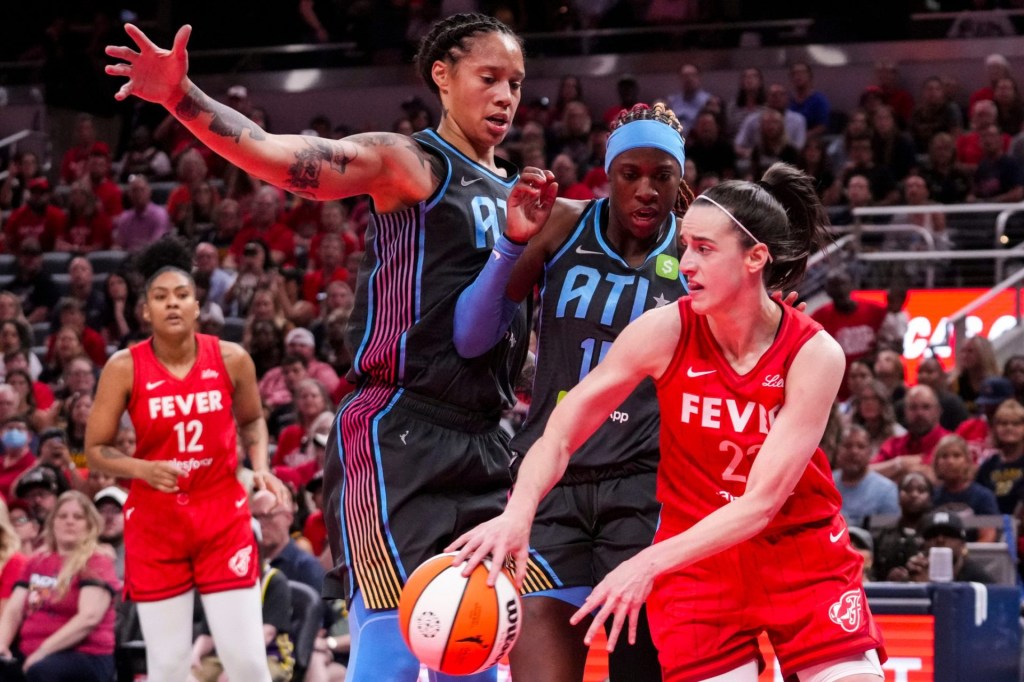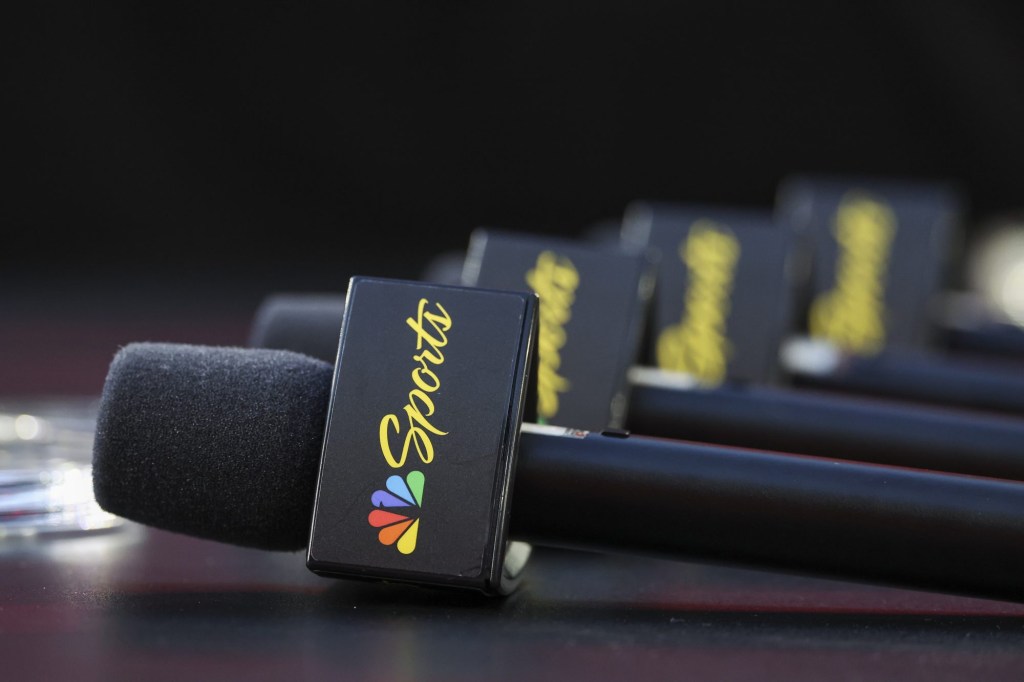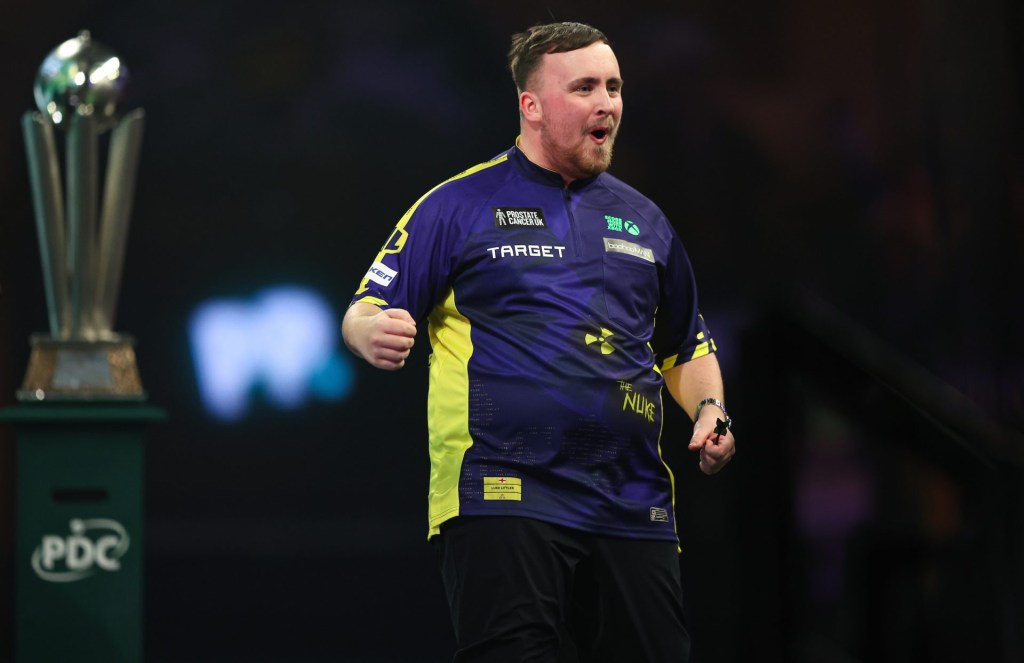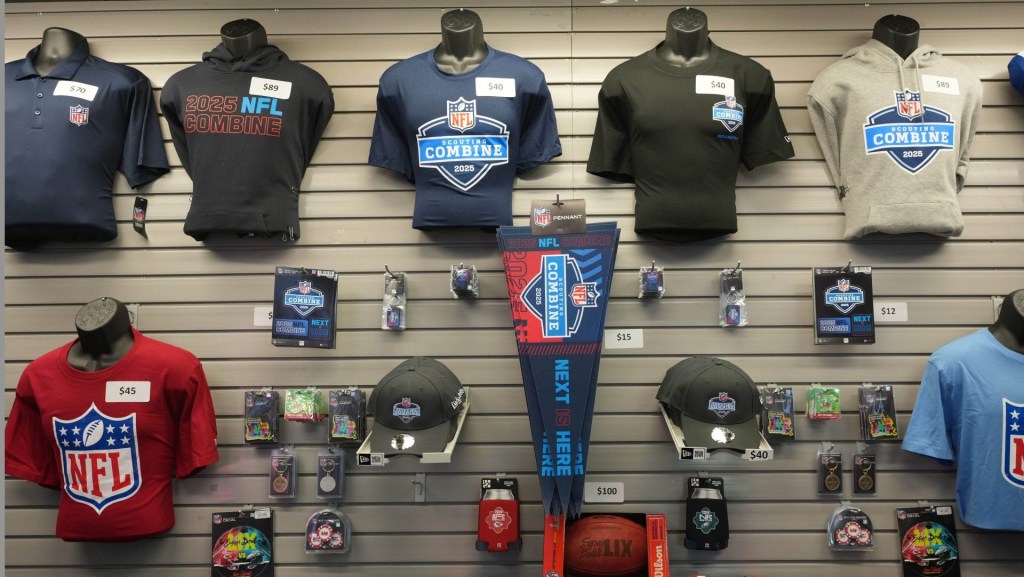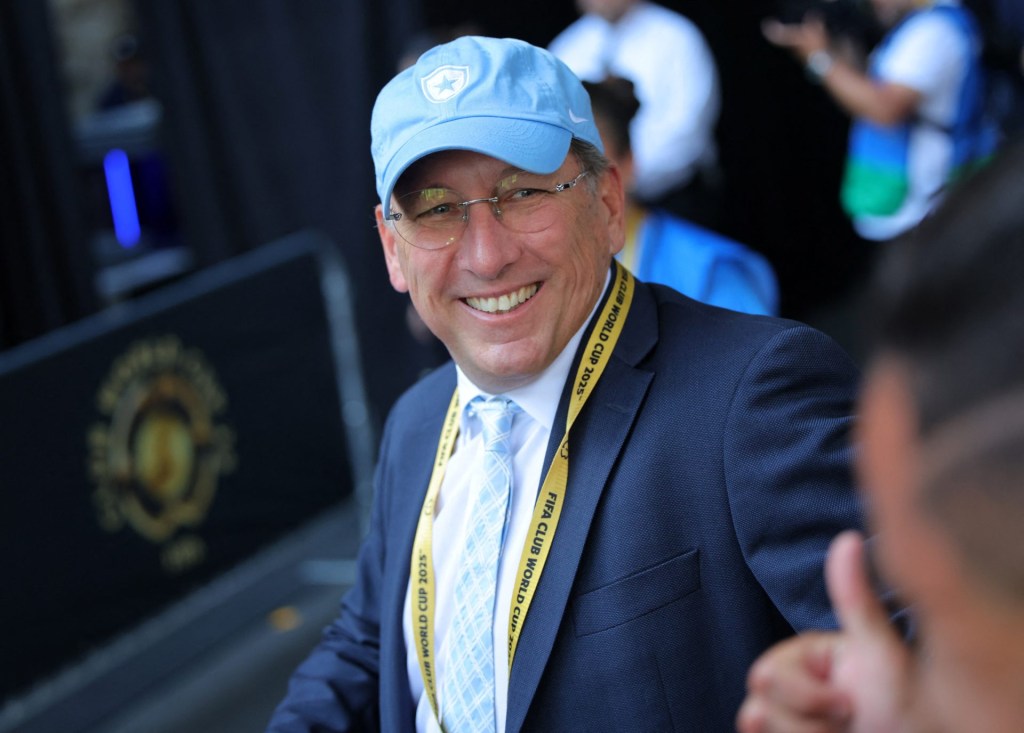By: Adam White, @FOSAdam

Front Office Sports is proud to have sat down with Pamela Chvotkin, Freelance Production Assistant and Stage Manager for ESPN. Pam, one of FOS’ biggest supporters is an experienced sports media professional with over 11 years of experience in the field. Having spent the last six years working for ESPN, she has been able to see first hand what makes ESPN the “Worldwide Leader in Sports.” She was gracious enough to take time out of her day to offer up her insight into what her everyday work is like, what females looking to break into the industry should remember and the importance of social media.
You have held a variety of positions throughout your career with the last six years being spent with networks like ESPN, and CBS Sports. What has that journey been like for you?
The journey has been an quite an experience. It is something where I can look back on it and say, I worked hard and created a strong foundation on my own and can reap the benefits from it. It is a cutthroat industry and, luckily, I had a fairly good idea of that from the start. My father and brothers are in the business, so being exposed to what the trials and tribulations of working in sports are like at an early age, really prepared me for success later on. Everything in my career is hands-on and involves working with a lot of people closely for many hours.
Since I am often doing so many different positions and working with so many different people, I am learning everyday. It has been a very positive journey with many ups and downs, and I have learned so much along the way. The journey is just as important as the destination. As I move up in my career, I am so glad that I went through the process from the ground up. Volunteering and interning in the beginning of my career afforded me the chance to make mistakes and allowed me to really see the ins and outs of the production world.
As a Freelance Production Assistant and Stage Manager for several networks, walk us through what a day in the life looks like and some of your favorite parts of your job?
Part of my responsibility is acting as the liaison between the broadcast production truck and the set/booth. The people that are in the trucks or on set, whether it is the director’s, graphics editors, or talent, usually can’t leave. I love this part of the job because I have the flexibility to float around, and I am on the ground handling a lot of the logistics, making sure that everything we might need on-site is coordinated properly. One of my main goals is to make sure that the entire crew is aware of the day’s scheduling, rehearsals, lunch breaks, etc. There is no job that is beneath me, I’ve done everything from pull and lay cable to get coffee to reschedule hotel stays and make sure anyone coming to site has the proper credentials.
Sometimes we don’t have a set timetable. It just depends on the crew, show size, event/sport, venue, etc. However long it takes is however long you have to stay…and if breaking news happens and we have to interrupt programming, expect to be there twice as long! You just have to be prepared for a plan B, C, D, and E at all times. It was a great experience and I was lucky to work with some of the most talented people in the business.
For the NBA Finals, I was working as an operations assistant on the studio side of the broadcast with ESPN. We are working together closely with game operations and we function as a cohesive unit to create a unique story for the viewing audience. The studio’s main functions were to handle everything pre-game, halftime, and post-game content. This included shows like SportsCenter and NBA Countdown. The Game ops handled the physical game itself. That specific group dealt with the play-by-play announcers, camera operators and those inside the production truck, like the video highlight editors, bug operators, and font coordinators.
One of the main things the crew will do is make sure all the appropriate lines and cables are set up on-site both in the arena and wherever the remote locations for studio sets are. This takes quite a while and the utilities and audio/video team know their exact positions of where they want to place the cable. We do this as early prior to game day so we can fix any connection issues. We want to trouble shoot and make sure everything is seamless before the games start. Each stadium and arena as well as remote site have different layouts, so site visits are required by operations and technical managers to seek out the potential locations as early as possible, sometimes weeks in advance, to figure out where everything should go.
Most of our responsibilities were delegated out by the Operations Producers/Managers on site. One of the things I was handling specifically was certain studio operations expenses and catered meal breaks. I was there bright and early every morning, usually before the main crew call, making sure the caterers arrived on time and to figure out what purchases will need to be made that day, if any. It can be the most stressful during game days which allow us a certain window of time that our crew can eat and our runners can leave site to get items we need for craft services. It’s a well oiled machine!
You have a large background in social media, what is your favorite medium to use, and how have you seen the industry change over the last few years? What do you wish you did better?
I definitely use Twitter the most. I am trying to get a better understanding and handle on Periscope especially for its behind the scenes capabilities. The video editing process is something I am looking to get better at because it can help you in so many ways and with the demand for video content at an all time high, it is good to have that knowledge.
Twitter, to me, has changed so drastically since I got on the platform in 2008. At first I didn’t understand the concept of Twitter because there was only a few of my friends on it. The people I did follow mostly were using it for non-personal reasons. Now that it is used more frequently, and is a great resource for breaking news, I am able to use it to help promote events, interact with my friends and followers. I am able to network with professionals both inside and outside of the sports industry. It is a great way to learn and get yourself out there, and build your own personal brand.
It is a medium that can be abused, though. Mostly by those who were never educated on how to utilize it. If it were up to me, I would have social media education classes for people starting in middle school, around the time kids are starting to own smartphones. People need to remember that what you say on social media is a direct extension of their personal brand. This goes for student-athletes, sports professionals, or anyone actively seeking employment or already employed by a company/organization. Actually, this should be mandatory for everyone who tweets/owns a smartphone.
Sports is seen as a male dominated industry both on and off the field. As a woman in sports, what has that experience been like for you and what would your advice be for other young females looking to get into the industry?
For me, it has been a positive experience. I haven’t had a situation that I can remember that made me truly uncomfortable. As a female, you have to have thick skin, though. There will be people who question your reasoning for everything you do, nature of the beast. I have been pushed to my limits before, but most men don’t have issues with women in this industry. If you know how to do your job, are familiar with the background of the sport, do your homework andresearch about what you’re covering, there should be no issue that anyone…male or female, should have with you.
A) You need to make friends with other women in the business. All you have to do is say hello. It seems obvious, but it is incredibly helpful. Those in senior positions are aware of the process each of us have had to go through and can offer advice in how they got there. Each person’s journey is different. Learning how others got to where they are can be helpful with finding your own path to reach your ultimate goal.
B) Speak up. If you want to be in a certain position, it is about how you perceive yourself and how you want others to perceive you. Reach out to those whose jobs you want to have as your career continues. If you’re eager to learn, you’ll more than likely to get a response.
C) Remind yourself of this daily: If you are competent in your career and know where you want to go, who is to say the world is not yours. There is no such thing as ‘I Can’t.’
D) Do not be afraid to explore other opportunities, especially in operations or productions. There are so many positions for women that are not in front of the camera. Make sure you are exploring all options that you are passionate about.
What are some things you wish you would have known when you started out?
I wish I had a better mindset of how my schedule would have been so I could have prepared my friends and family for how hectic it would be. Although I grew up around the business, it’s hard to explain or understand how everything works unless you are in it yourself. Working in this industry is definitely a sacrifice. It is an interesting conversation to tell your parents and friends, “I am passionate about this and it is something I want to do the rest of my life, will you support me?” Especially when they see how much work you do early on, how little time you are around, and the amount of money you make (or don’t make).
People have to realize that relationships do suffer, but only if you allow them to. If you let your friends and family know early on, and they support you, the good ones will stick around and stand by you. They are going to be your foundation for the rest of your career.
I wish I knew that it would have been okay to reach out to executives and people in senior positions to pick their brains and talk to them about their success. We didn’t really have LinkedIn or easy access to email when I was starting out, so it was hard to network outside of word of mouth. That is something that I wish was more prevalent when I began. Now that it is available, I make an effort to help connect others with people as often as I can.
What are the things all students should know before getting into sports?
1. Always be expanding your relationships and network. Social media is a great tool to help do this. Continue to take risks and meet new people.
2. Thanking people and respecting people even when they are being impossible. Respect them for their opinion and disagree, but do it in a professional manner.
3. Always be looking for new opportunities to grow and always look for something new to add value for what you do everyday.This doesn’t mean be actively seeking for a new job once you get one, but instead, realize that what is in your job description will not be the only thing that you will do. Opportunities don’t always allow you to move up the ladder, it might mean a lateral move. Sometimes that is the best fit to best prepare you to reach your goals.
We would like to thank Pam for her time and insight and we wish her all the best in her future endeavors!
You can follow her on Twitter here or connect with her on LinkedIn here!

